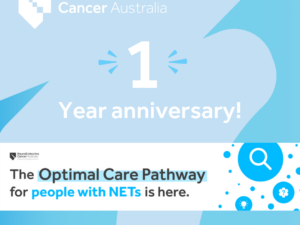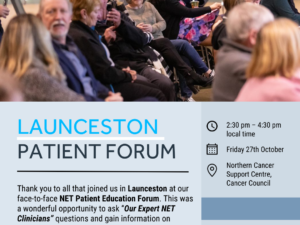Unmet needs in the international neuroendocrine tumor (NET) community: Assessment of major gaps from the perspective of patients, patient advocates and NET health care professionals, published in the International Journal of Cancer.
Due to the increasing incidence and prevalence of neuroendocrine tumors (NETs), there is a need to assess any gaps in awareness and care. A survey was undertaken in 2017 to identify perceived unmet needs from the perspectives of patients/families, patient advocates and health care professionals (HCPs).
The findings of this survey provide a more detailed picture of the unmet needs of NET patients than identified previously in the literature and highlights key areas for improvement. To our knowledge, this is the first international study that has compared perceptions of patients’ unmet needs from the differing perspectives of patients/families, advocates and HCPs. Several important unmet needs were identified. In each of the areas surveyed, less than a quarter of patients felt their needs for more information at diagnosis were fully met. While HCPs generally agreed that there is room for improvement, overall they were considerably more confident about their ability to meet patients’ needs than reflected by the experiences of patients themselves.
The authors identified the following action points which should be addressed urgently:
– Improve utilization of exisiting resources, such as including patients in MDTs and providing written information to patients at time of consultation.
– Educate HCPs to enable them to provide patients with sufficient information at diagnosis and about treatment options
– Provide information and resources to keep patient organisation websites up-to-date as these are an important source of information
– Facilitate access to main diagnostic tools and treatments such as Gallium-68-Dotatate PET/CT scan and PRRT
– Provide financial help for patients in need and improve access to caregivers
– Improve access to MDTs
– Encourage nurses to specialise in NETs, and ensure training involves teaching around psychological care
– Increase patient involvement in research by providing information about ongoing trials and facilitate access
We are very proud of the hard work that was put into this publication and we will use these findings to raise awareness and encourage change for all NET Patients. To read the full article please click here.











